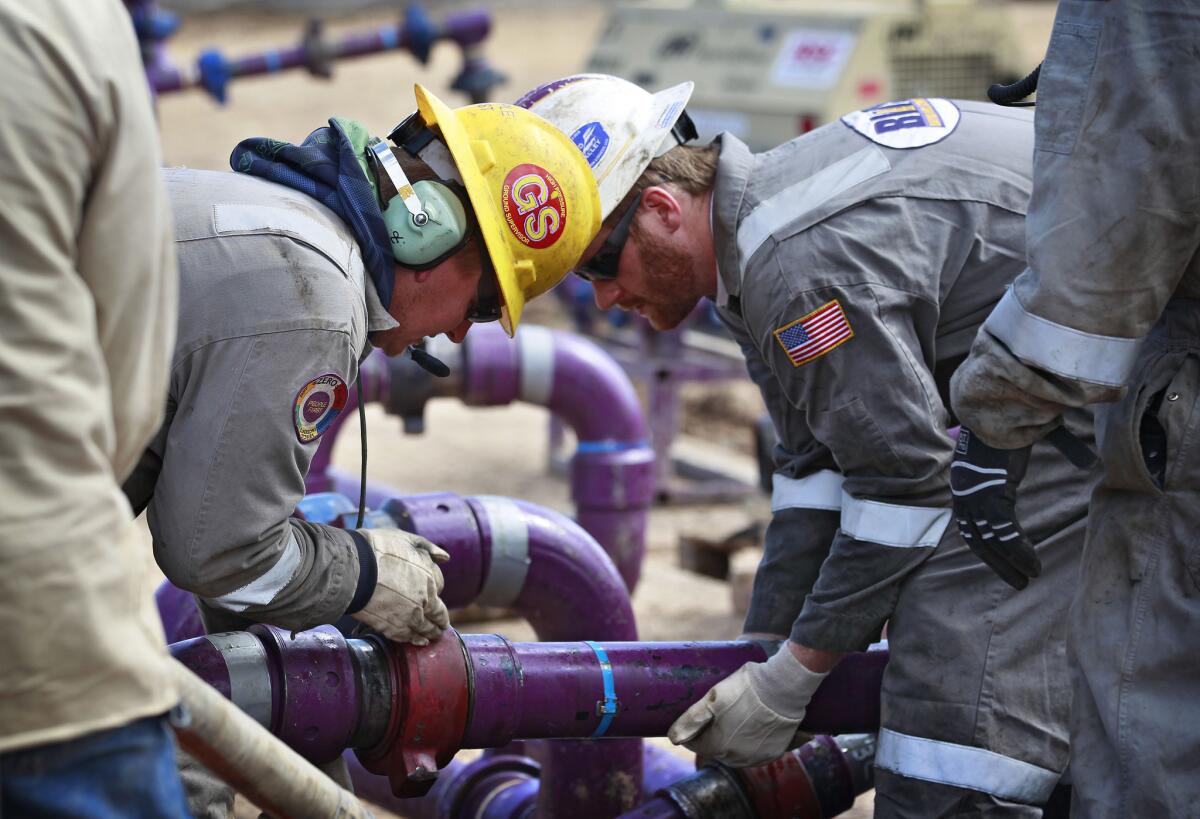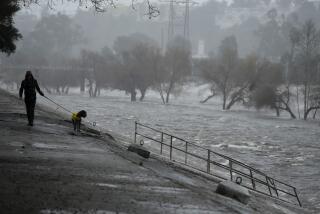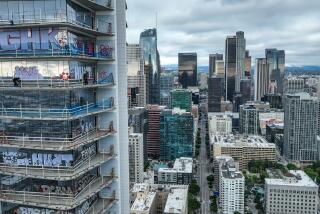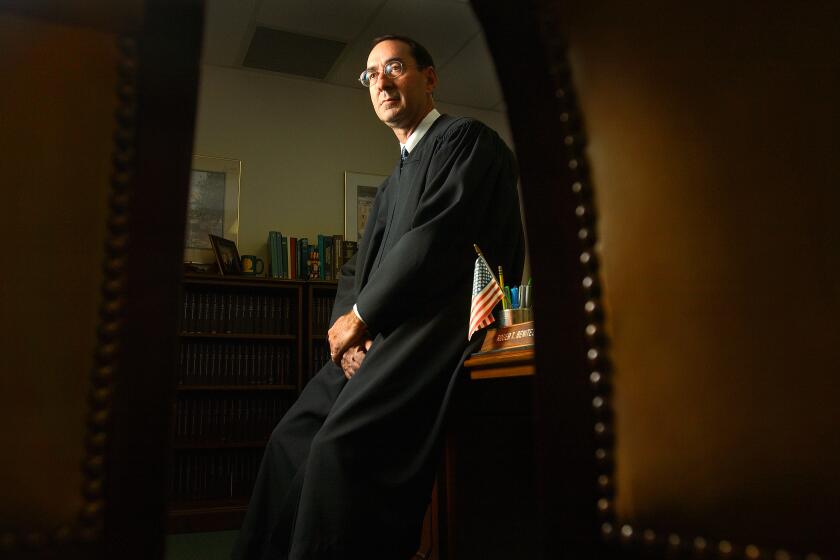First step toward fracking ban in L.A. taken by land use panel

A Los Angeles City Council committee took a first step Tuesday toward banning hydraulic fracturing and other disputed practices tied to oil extraction, winning cheers and applause from a packed auditorium.
“Fracking and other unconventional drilling is happening here in Los Angeles, and without the oversight and review to keep our neighborhoods safe,” Councilman Mike Bonin told the Planning and Land Use Management Committee.
The panel decided to pass the matter along to the council after hearing from dozens of supporters.
“We can’t allow the safety of our neighborhoods that we represent to be jeopardized by dangerous drilling,” Bonin said.
The council is slated to vote Friday to draft new rules that would prohibit hydraulic fracturing and other forms of “well stimulation” in Los Angeles until the council is sure they are safe. City planners were unable to say Tuesday how many drilling sites in Los Angeles might be affected.
Hydraulic fracturing, often referred to as fracking, is a practice of injecting water mixed with chemicals to fracture underground rock, releasing pockets of oil or natural gas.
Environmentalists and neighborhood activists opposed to the practice and other kinds of well stimulation argue that such methods taint drinking water and trigger seismic activity.
“It is known to be an ecological disaster. It is known to be a health catastrophe,” said Kwazi Nkrumah, co-chair of the Martin Luther King Coalition of Greater Los Angeles. “And it’s also an economic bulldozer against the communities where it takes place.”
Several Angelenos complained about vibrations and other problems that they blamed on oil extraction activities at nearby wells.
“Our walls are crumbling,” said Llewyn Fowlkes, part of the Harbor Gateway North Neighborhood Council, which backs a ban. “Our sidewalks are pulling apart and cracking.”
Petroleum companies counter that practices targeted by the ban aren’t hazardous and generate needed jobs. Nick Ortiz of the Western States Petroleum Assn. told the committee that hydraulic fracturing was a “safe and proven” technology that “has never been associated with any confirmed case of groundwater contamination.”
Adriana Fernandez, legislative affairs manager for the Valley Industry & Commerce Assn., argued that city rules are unnecessary because California legislators already passed a statewide bill regulating hydraulic fracturing. Bonin said the bill was “amended beyond recognition” before it passed.
The motion, originally presented by Bonin and Councilman Paul Koretz, said well stimulation methods would be barred until the council was assured that the people of Los Angeles, their water supply and their properties were safe from seismic and health concerns tied to oil exploration.
Lifting the ban would also be contingent on state and federal regulations protecting citizens from “the adverse effects” of such activities, the motion states.
Rock Zierman, chief executive of the California Independent Petroleum Assn., said that if Los Angeles presses forward, it would be the first California city that produces oil to bar such practices.
However, other areas have already voted to support a statewide moratorium or ban, including Carson and Culver City. Hundreds of communities nationwide, ranging from neighborhood councils to counties, have taken steps to oppose fracking, according to the environmental group Food & Water Watch.
Twitter: @latimesemily
More to Read
Start your day right
Sign up for Essential California for news, features and recommendations from the L.A. Times and beyond in your inbox six days a week.
You may occasionally receive promotional content from the Los Angeles Times.







